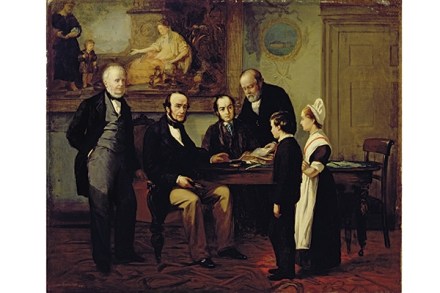Lost and found | 2 May 2019
One of the oddest of Bloomsbury’s event venues must be the Foundling Museum. The handsome building on Coram’s Fields houses what remains of the London Foundling Hospital, which opened on the site in 1745. Its imposing rooms are lined with oil portraits of past patrons and among the artefacts on display is the original score of George Frideric Handel’s fundraising The Messiah, which he donated to the hospital. In the 18th century the Foundling Hospital was a fashionable cause, and the great and good flocked to associate with its charitable works. But some of the museum’s cases tell another story — the history not of great names but of the





















